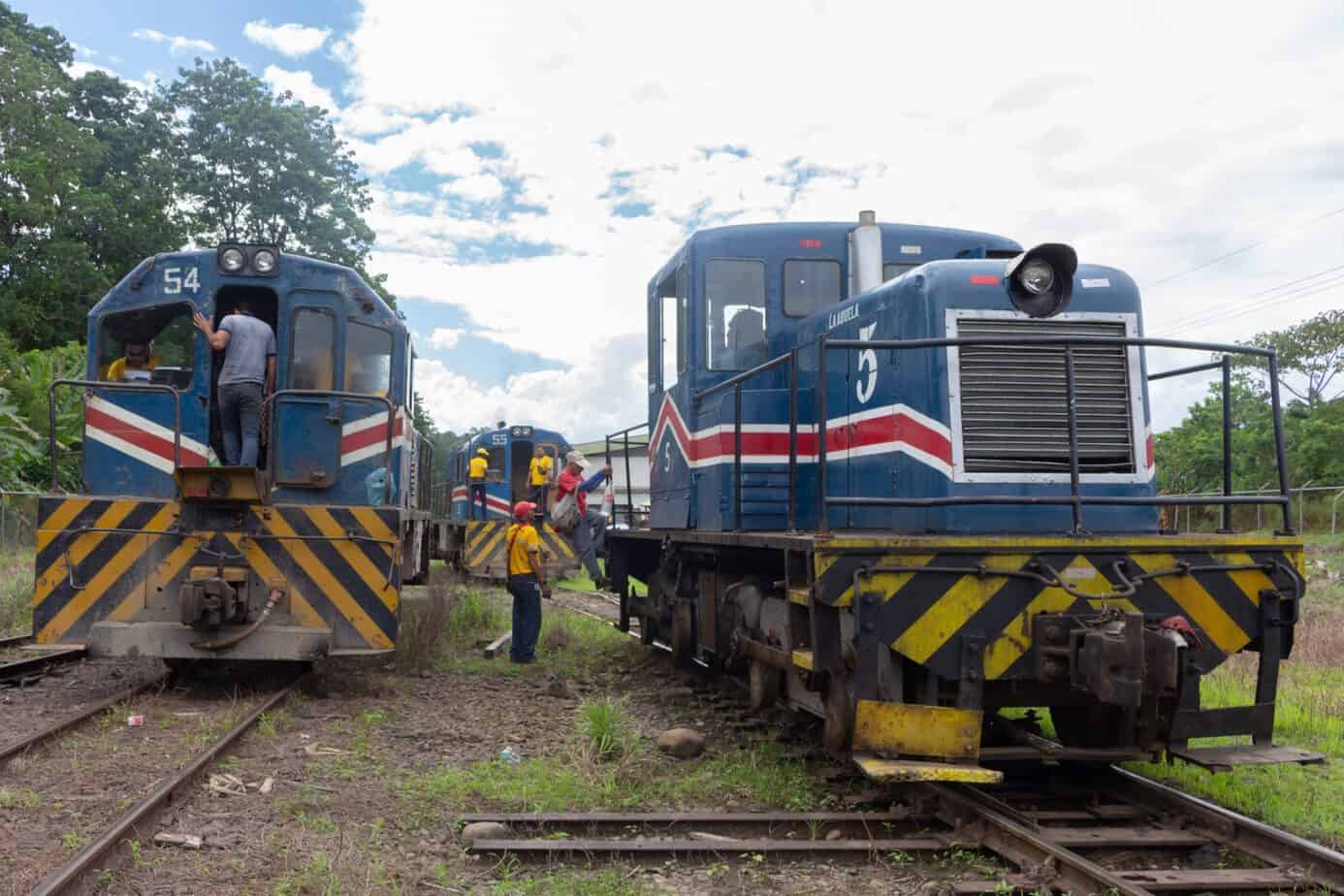 INCOFER locomotives in Limón. (Photo by Diego Quesada / Casa Presidencial.)
INCOFER locomotives in Limón. (Photo by Diego Quesada / Casa Presidencial.)Casa Presidencial announced Thursday that it has awarded a $595,900 contract to a Spanish-Mexican consortium to explore the technical, economic, social and environmental feasibility of the Limon Electric Freight Train Project, or TELCA.
AUDINGINTRAESA-AUDINGMEX Consortium was selected from a group of more than 25 companies, seven of which submitted a formal offer to complete the study.
“This is another example of the hard work that is being done at INCOFER to carry forward the railway modernization projects,” said Elizabeth Briceño, Executive President of INCOFER. “The executing unit of the project is working according to the proposed schedule, and in that sense, we are going to make this project a reality.”
The project would modernize stretches of rail between Limón and Río Frío (109 km), and between Limón and Valle de la Estrella (60 km), as well as explore the viability of a new stretch between Río Frío and Bajos de Chilamate (30 km).

The electric rail system would expand Costa Rica’s ability to transport cargo through renewable resources. The government also expects TELCA would decongest Route 32, which connects San José to Limón, and help support the Caribbean province’s economy.
Casa Presidencial expects the feasibility study to be complete in March 2020. INCOFER and the Costa Rican government would then begin the bidding process for construction of the railroad.





